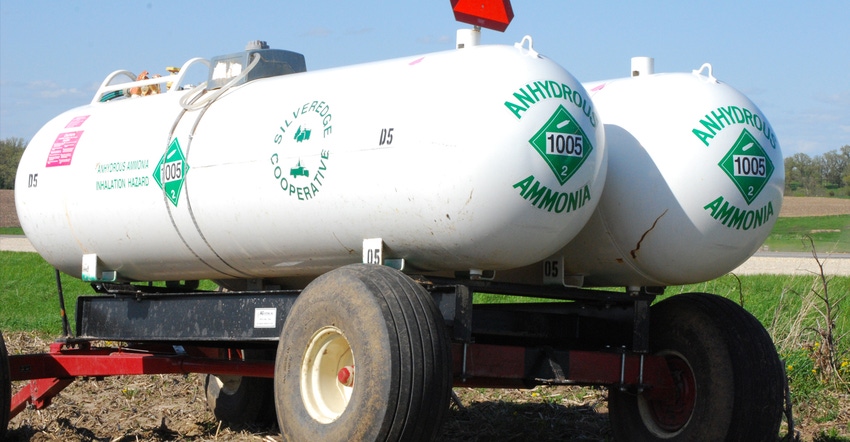
Members of Agriculture’s Clean Water Alliance have reaffirmed their agreement to protect Iowa’s soil and water resources. The group of 11 ag retailers announced at the end of September they agreed to the Environmental Code of Practice for 2018.
In the code, ACWA members agree to delay fall anhydrous applications that are without a nitrification inhibitor until soil temperatures are 50 degrees F and trending lower. Members use the county soil temperature and forecast maps compiled by Iowa State University to determine when to start fall fertilizer applications.
“For over 15 years, we have focused on proper nutrient management and environmental stewardship, and now is no exception,” says Dan Dix, ACWA president and general manager of NEW Cooperative. “The Code of Practice is a fundamental aspect of ACWA membership, and we are glad to be a 4R Plus partner. The 4R Plus principles are globally accepted standards of best practices for cropping systems, and we are proud to enhance our focus and offerings through them.”
Follow 4R plus management practices
4R Plus focuses on fertilizer application with the consideration of the right source, right rate, right time and right place. The “Plus” adds conservation practices to the management focus, to enhance soil health and improve water quality. Led by The Nature Conservancy, the 4R Plus program is guided by a coalition of ag and conservation organizations to support farmers’ efforts to implement precise nutrient management and conservation practices.
“Our Code of Practice aligns with the 4R’s, and there is synergy in the guidelines,” says Harry Ahrenholtz, a fertilizer dealer who is chairman of ACWA. “Members of ACWA hold each other accountable to abide by these standards, and each retailer notifies the group when fall fertilizer applications begin.”
ACWA supports adoption of nutrient management technologies to maximize nutrient-use efficiency and help protect water quality, Ahrenholtz says. These technologies include nitrogen stabilizers, slow-release fertilizers, incorporation or injection, soil nitrate testing and other tools that minimize loss of nitrogen to water sources.
ACWA encourages farmers to implement additional conservation and edge-of-field practices to reduce nitrate flow from tile systems, including bioreactors, constructed wetlands, conservation stream buffers and cover crops.
Dealers help farmers manage nutrients
“Members are dedicated to helping farmers manage nutrients to enhance both environmental quality and crop production,” says Roger Wolf, ACWA executive director. “The agriculture community remains committed to implementing practices that have a positive impact on environmental and water quality, as well as improving crop production.”
Wolf is director of environmental programs and services for the Iowa Soybean Association.
ACWA background
Agriculture’s Clean Water Alliance is an association of 11 ag retailers and five associate members who support farmer-customers in the Des Moines River basin and the Raccoon River basin. ACWA’s mission is to help agriculture identify and implement solutions that reduce nutrient loss to Iowa waters.
From 2001 to 2016, ACWA members and sponsors have invested more than $3.2 million in the two watersheds, with over $1.9 million directly for projects and programs supporting water quality monitoring, edge-of-field practice demonstration and evaluation, and targeted watershed implementation efforts on farms.
For more information about the ACWA, visit acwa-rrws.org. For more information about 4R Plus, visit 4rplus.org.
About the Author(s)
You May Also Like




